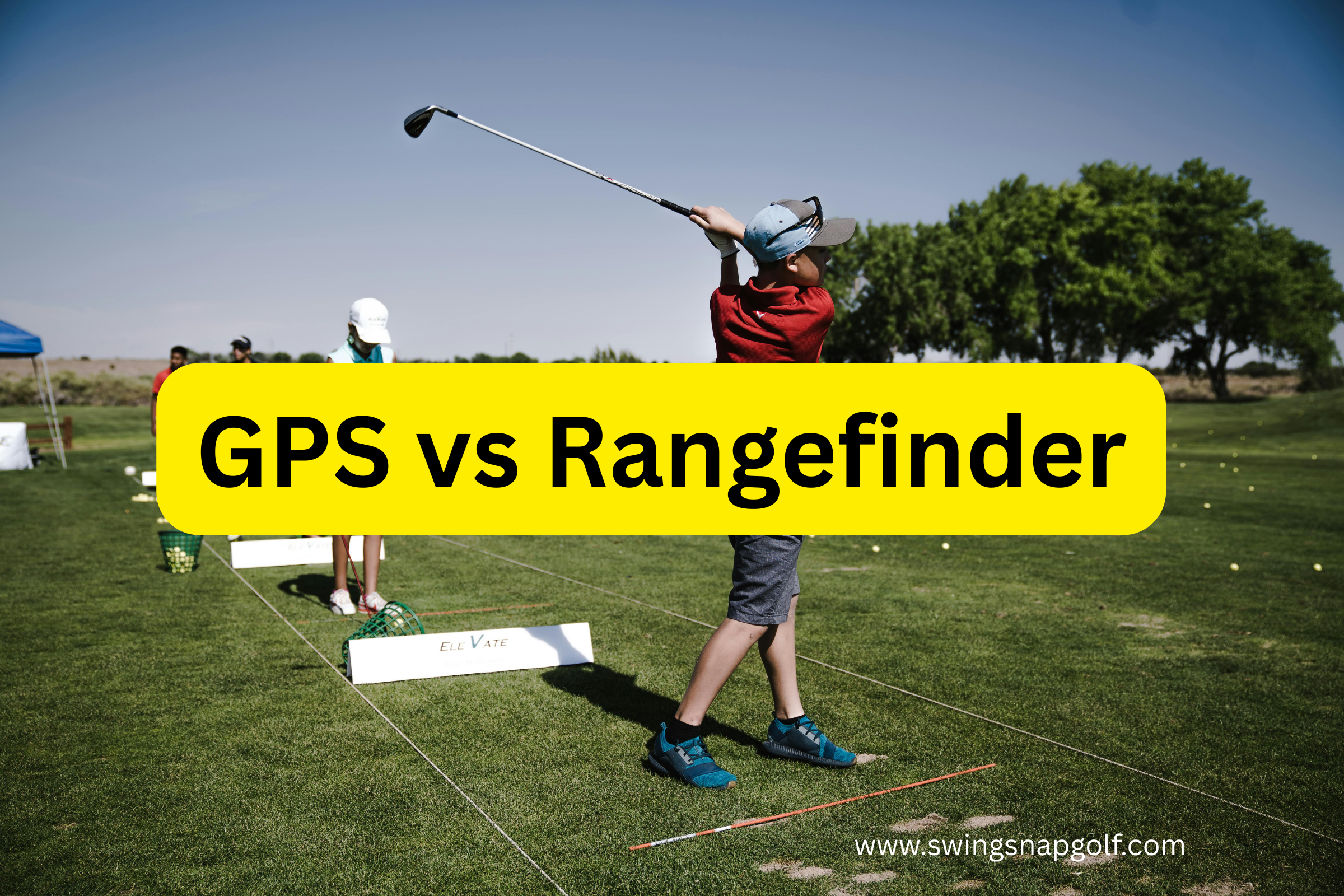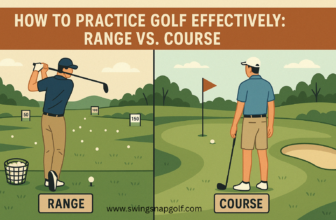
Whether you’re a weekend warrior or a competitive golfer, accurate distance measurement is essential to improving your performance. But when it comes to choosing a golf distance-measuring device, the debate often boils down to GPS vs rangefinder for golf. Both have unique strengths and use cases, and picking the right one depends on your playing style, preferences, and budget.
What is a Golf GPS Device?
A golf GPS (Global Positioning System) device uses satellite signals to provide course maps, hole layouts, and distance data. GPS devices come in various forms—handheld units, smartwatches, and smartphone apps.
Pros of Golf GPS Devices:
- Hole overview: Offers aerial views of the course and hazards.
- Multiple distances: Shows distances to front, center, and back of the green.
- Hands-free use: Smartwatches and apps allow for quick, glanceable information.
- Great for unfamiliar courses: Helps with strategy and club selection.
Cons of Golf GPS Devices:
- Accuracy limitations: May not be as precise as a rangefinder.
- Satellite issues: Can lose signal in bad weather or dense tree coverage.
- Battery dependent: Frequent charging required, especially with smartwatches.
What is a Golf Rangefinder?
A golf rangefinder is a laser-based device that provides exact distances by targeting the flagstick or specific points. It’s used by aiming and shooting a laser beam at the intended target.
Pros of Golf Rangefinders:
- High accuracy: Measures exact yardage to the pin or specific object.
- Slope technology: Some models adjust for elevation changes (if permitted by rules).
- Quick feedback: Offers near-instant readings with minimal user input.
Cons of Golf Rangefinders:
- Line of sight required: Can’t measure what you can’t see.
- No hole layout: Doesn’t offer a visual map or course strategy.
- Learning curve: May take time to get steady readings for beginners.
Key Differences: GPS vs Rangefinder
| Feature | GPS Device | Rangefinder |
| Accuracy | Within 3-5 yards | Within 1 yard (very precise) |
| Course Mapping | Yes (full layouts & hazards) | No |
| Targeting the Flag | Not specific | Direct targeting |
| Ease of Use | Very user-friendly | Requires manual targeting |
| Visual Data | Shows entire hole | Only distance to target |
| Best For | Course navigation, strategy | Pinpoint yardages, accuracy |
Which Should You Choose?
Your ideal choice depends on how you play:
- Choose a GPS device if you want a full course overview, prefer convenience, and play on many different courses. It’s great for strategic players and those who value visual data.
- Go with a rangefinder if pinpoint accuracy is your priority, especially for approach shots. It’s perfect for golfers who know the course well and want laser-precise distances.
Best of Both Worlds?
Many advanced golfers use both. GPS for planning and strategy, and a rangefinder for exact pin distances. Some brands even offer hybrid devices combining both technologies.
Conclusion: GPS vs Rangefinder for Golf
Both GPS and rangefinders are excellent tools that cater to different styles of play. If you’re focused on course management and strategy, a GPS might be your best companion. If accuracy and pin targeting are crucial, a rangefinder will serve you well. Consider your budget, playing habits, and preferences to make the most informed decision.






